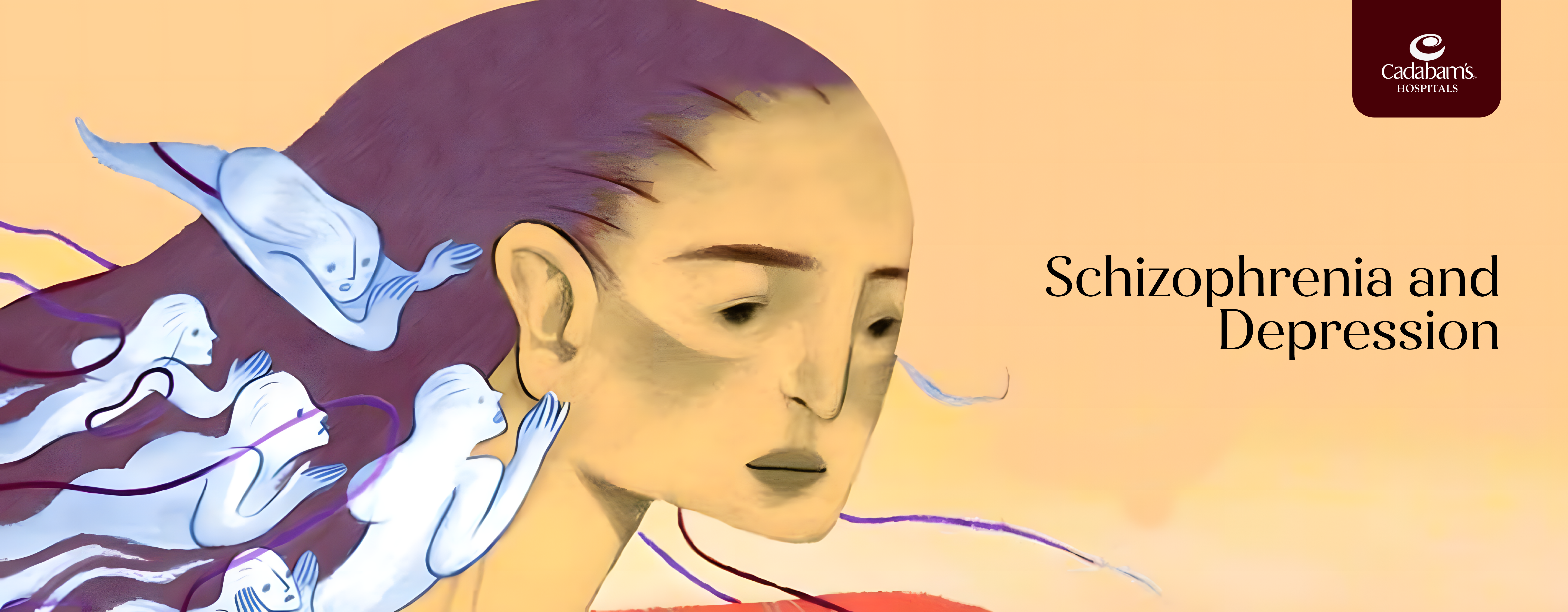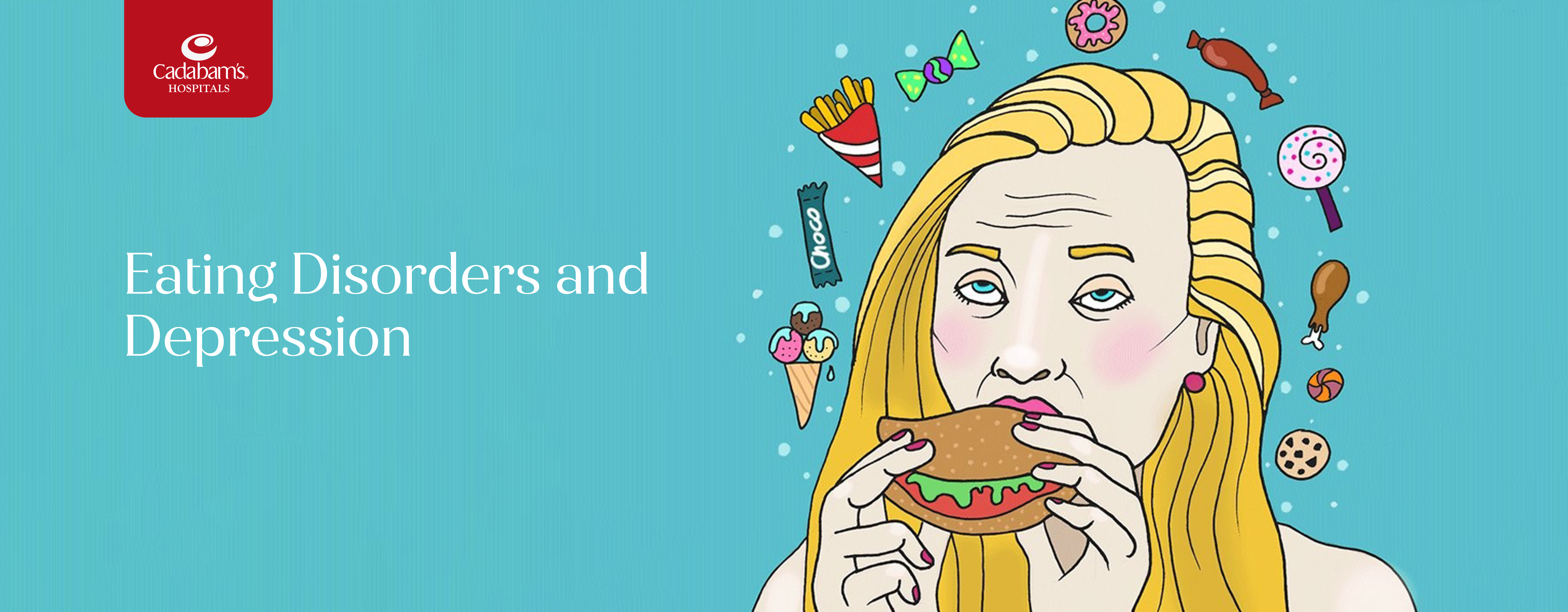What is Biofeedback Therapy?
Biofeedback therapy uses sensors to trace your body’s stress, muscle tension, and breathing patterns and provides you with real-time feedback. Through this, you learn to navigate your own emotions and moods that fuel your stress, which will not only reduce your anxiety but also help to alleviate your symptoms. Cadabam’s biofeedback helps you be more aware of your body’s responses to certain stressors, improving your overall well-being.
The Science Behind Biofeedback
The method of depression biofeedback treatment combines psychological and physiological components. It recognises that depression has both mental and physical repercussions.
Biofeedback therapy is used by therapists to help their patients become more conscious of how their body responds physiologically to different stresses, such as heart rate, tense muscles, and breathing patterns.
Biofeedback vs. Traditional Therapies
Traditional therapeutic strategies like cognitive-behavioural therapy (CBT), dialectical behaviour therapy (DBT), and family and group therapy address the psychological and behavioural aspects of depression. Cadabam’s biofeedback employs real-time physiological data to teach self-regulation of stress responses.
Traditional treatment focuses on identifying and addressing the underlying causes and habits associated with the disease over time. Our biofeedback technology concentration allows professionals to get insight into unique triggers and make suitable suggestions.
Safety and Efficacy of Biofeedback
Biofeedback therapy can be safely employed by professionals with the requisite skills and expertise. It uses non-invasive sensors to monitor physiological responses such as heart rate and muscular tension. According to research, it can help with the treatment of pain, stress, anxiety-related illnesses, and other depressive symptoms.
Our biofeedback complements traditional therapy by providing coping skills and symptom management approaches. The efficacy of it depends on how it interacts with other therapies and individual conditions.
How Biofeedback Transforms Depression Treatment in Bangalore
When administered by a skilled practitioner, biofeedback can offer people real-time data and control over their reactions. Biofeedback, which uses data such as skin conductance and heart rate variability, assists each in identifying and addressing the stresses and triggers that cause their disease.
This self-regulation training can help with long-term rehabilitation and improve resistance to trigger situations. Biofeedback is typically coupled with both traditional and alternative therapy modalities to ensure a complete recovery according to the individual’s needs.
The Process of Biofeedback Therapy: What to Expect
The initial step in Cadabam’s biofeedback therapy is to assess physiological indicators. Our biofeedback therapist respects and takes into consideration everyone’s thoughts, feelings, and suggestions.
A sensor will be placed on your body by the therapist throughout the therapy session to track your heart rate, breathing patterns, muscle tightness, and brain waves. Real-time data of your responses are collected and shown on the computer screen.
Therapists will educate each individual about these emotions and the link between them and unhealthy habits. People learn how to manage their physiological reactions through mindfulness and relaxation exercises.
Therapists monitor progress and adapt techniques as required to promote ongoing healing. The process encourages self-awareness and stress management techniques that enhance general health.
Benefits of Biofeedback for Depression patients
Utilising awareness of physiological responses, biofeedback provides Depression patients with a transformative path to recovery. By focusing on personalised techniques and continuous monitoring, this therapy empowers individuals to manage stress, reduce mood swings, and enhance overall well-being.
Enhances Emotional Regulation and Stress Management
The primary goal of biofeedback therapy is mood and stress control. By teaching individuals to monitor and regulate physiological reactions, biofeedback equips people with the skills they need to manage their emotions and lower stress levels. This encourages overall health and long-term recovery.
Improves Symptom Management
Biofeedback helps people with depression better control their symptoms by teaching them to monitor physiological indicators such as heart rate, breathing patterns, and brain waves. This enables people to recognise stress and mood fluctuations early on, enabling preventive measures that enhance symptom management.
Boosts Patient Engagement and Self-Awareness
Biofeedback technology is characterised by its ability to provide immediate feedback based on an individual’s reactions. This therapy gives real-time feedback on physiological reactions, such as heart rate and muscular tension, which promotes active participation in therapy. People may learn how their bodies react to stress and triggers by doing this.
How Biofeedback Complements Traditional Depression Treatments
Biofeedback for depression adds an important psychological element that is equally important, unlike traditional therapy, which usually focuses on behavioural and psychological factors. It records your body’s responses, like heart rate and muscular tension, and uses this information to improve the efficacy of traditional treatments.
This strategy strengthens and supplements conventional therapy techniques by giving people more skills to deal with stress and triggers and by helping them control their emotions and tension.
Navigating the Biofeedback Process for Depression in Bangalore
Skilled and experienced professionals must ensure that everyone undergoes each stage of biofeedback attentively and accurately to deliver successful therapy. Every person in recovery has the right to know about the nature and the procedure of biofeedback therapy. Therefore, they should be given ample time to prepare and stay informed about its processes.
Steps Involved in Biofeedback Therapy
A typical biofeedback treatment session starts with an evaluation of physiological indications such as heart rate, muscular tension, breathing patterns, and brain waves. Patients are then trained on these responses and given biofeedback methods.
Throughout the session, patients practise various strategies while receiving real-time physiological feedback. Therapists assess progress, alter strategies as required, and provide ongoing support to ensure the therapy’s efficacy.
Patient Preparation and Involvement
Patients can better prepare for their biofeedback sessions by learning about the goals and methods of the therapy. They become adept at recognising physiological responses such as heart rate and muscular tension. By learning relaxation techniques and being aware of their body’s cues, patients actively participate in their sessions.
Monitoring And Interpreting Biofeedback Results
Therapists monitor physiological responses by watching real-time biofeedback data during sessions. This information is analysed in order to identify stress levels and set off responses. Therapists can tailor relaxation and self-regulation therapies with the use of these findings.
Customising Biofeedback Therapy for Individual Needs in Bangalore
Tailored biofeedback therapy frequently assesses factors like cultural context and specific physiological responses. This approach improves efficacy by addressing triggers unique to each person’s experience and environment.
Assessing Individual Patient Needs
When using biofeedback to treat depression, therapists begin by conducting thorough examinations to determine the patient’s physiological reactions and psychological triggers.
These preliminary assessments are essential for pinpointing certain stresses and choosing the best biofeedback modalities (skin conductance, heart rate variability, etc.). This customised strategy supports the patient’s healing process by improving their capacity for self-regulation.
Developing Personalised Biofeedback Plans
Specific biofeedback techniques, such as heart rate and electromyography, are selected to treat stress and emotional control after preliminary assessments of physiological responses.
These methods are used with conventional medicines to provide a customised strategy based on the requirements of the patient. By improving coping mechanisms and self-awareness, this method promotes long-term rehabilitation.
Adjusting Therapy Based on Patient Response and Progress
Depression biofeedback therapy is continually adjusted to the patient’s reaction by tracking physiological data and assessing emotional control and stress management developments.
Biofeedback procedures are adjusted as necessary to maximise results, particularly because certain triggers might not be immediately apparent or might appear exaggerated at first.
Integrating Biofeedback into Holistic Depression Care in Bangalore
There is no one-size-fits-all treatment for depression. The therapist will incorporate biofeedback with holistic care in the treatment regime that enhances or complements the existing treatment. The results may vary depending on the individual’s condition.
Role Of Biofeedback in A Broader Treatment Plan
The primary focus of traditional therapy like cognitive behavioural therapy (CBT) and dialectical behaviour therapy (DBT) are psychological and behavioural aspects, but biofeedback therapy for depression adds physiological factors that make them aware of their body responses and teaches everyone how to navigate and manage stress, making them proactive in the treatment process.
By incorporating every aspect of well-being into consideration, this holistic care offers coping skills that minimise the triggers and mood, improve emotional health and reduce potential relapse.
Collaborating With Mental Health Professionals
Mental health professionals are essential in addressing the underlying psychological causes of depression, such as stressful circumstances or socioeconomic background.
Their knowledge guarantees the smooth integration of biofeedback therapies into all-encompassing therapy programs, strengthening coping skills and emotional resilience. This cooperative approach maximises therapy outcomes by addressing the mental and physical aspects of depression recovery.
Ensuring a Multidisciplinary Approach to Care
A multidisciplinary approach addresses both the psychological and physiological aspects of depression. Biofeedback is a helpful supplement to traditional therapies like counselling and medicine that aim for long-term psychological healing since it improves self-regulation and stress management.
Intending to provide each individual with specialised tools for long-term rehabilitation and wellness, this integration provides comprehensive assistance.
Cadabam’s Hospital: Pioneering Biofeedback Therapy for Depression in Bangalore
Individuals can avail themselves of biofeedback and other services and care for depression with Cadabam’s Neuromodulatory Services (CNS). You can discover a multitude of cutting-edge technologies at your fingertip, improving your mental health with personalised and holistic care.
Our expert team of psychologists, therapists, and specialists provides individualised biofeedback sessions to help patients effectively manage depression-related stressors, reduce stress and anxiety, and improve sleep.
Our Expertise in Biofeedback Therapy for
Our professionals are skilled and knowledgeable about the connection between physiological responses and how depression symptoms are exacerbated by them. Because of their experience, we are able to integrate biofeedback techniques into customised treatment plans with effectiveness, enabling patients to enhance their quality of life and cope with stress while they recover.
Assessment and Personalised Treatment Planning for Depression
Our mental health specialists carry out in-depth examinations that consider the social, psychological, and physiological elements affecting how depression symptoms appear. From there, they create customised therapy programs that meet each patient’s needs.
These programs combine a variety of traditional therapies like CBT, DBT, family counselling, medication, holistic activities yoga, and meditation, and other creative therapies like dance or music therapy, with relaxation methods. The goal of this all-encompassing strategy is to promote healthy recovery and well-being.
State-of-the-Art Facilities and Supportive Environment for Depression
Our facility has modern technology and comfortable spaces created especially for biofeedback sessions, and our well-appointed treatment rooms are quiet and focused, which improves the effectiveness of biofeedback techniques for lowering stress and elevating mood.
Ongoing Support and Monitoring for Depression
We provide institutional materials, support groups, and connections with other like-minded people for individuals needing biofeedback therapy for depression. Our therapists also conduct one-on-one counselling to help individuals get the most out of their biofeedback applications.
Comprehensive Care Approach at Cadabam’s for Depression
Cadabam’s support for treating depression goes beyond the therapy sessions. We provide stress reduction methods, mood enhancement, individualised therapeutic methods, support group access, and effective tools that help them navigate and manage depressive symptoms.
Since depression can affect entire family members, our therapists also counsel family members on maintaining their own health while supporting their loved one’s recovery.
FAQs
How does biofeedback therapy help in depression management?
Biofeedback therapy for depression helps individuals become more aware of their reactions to stressors by monitoring their heart rate, breathing patterns, and muscle tension, which eventually helps lower stress and improve mood.
What can patients expect during a biofeedback session?
During a biofeedback session, patients may learn about their physiological responses and practice techniques like relaxation while getting real-time feedback on their body’s reactions.
How is biofeedback therapy integrated with other depression treatments
Biofeedback for depression goes beyond traditional therapy by incorporating physiological responses to improve treatment. It equips people with skills to manage stress and emotions, complementing traditional techniques.














 Available
Available



















